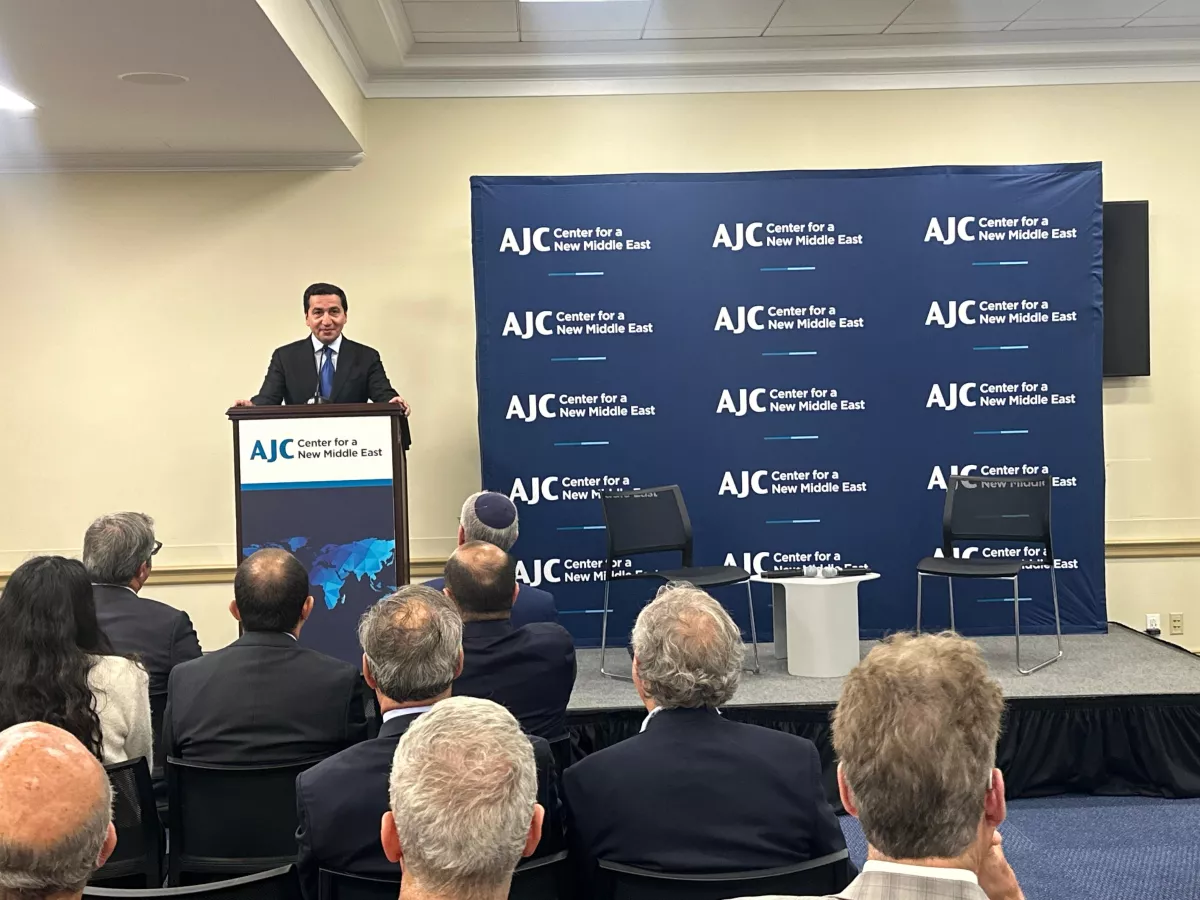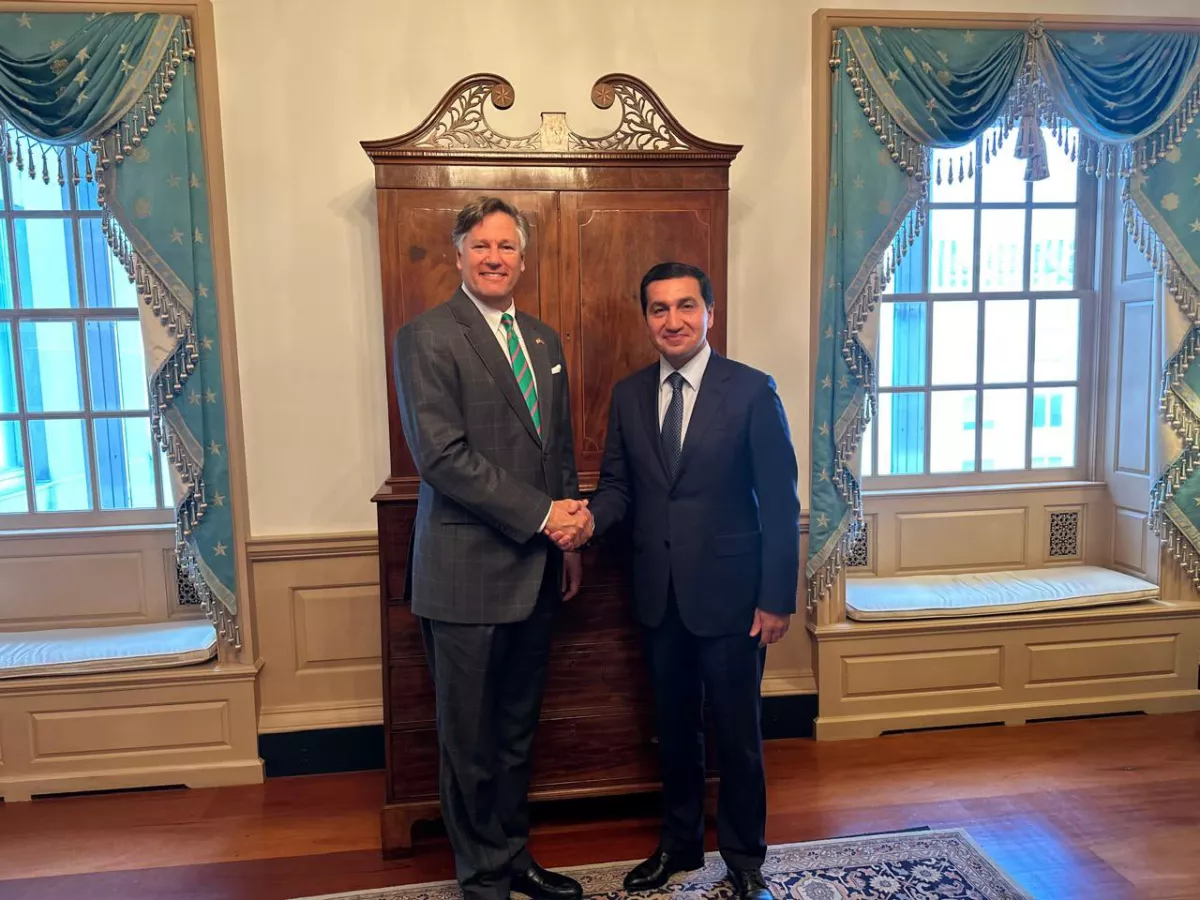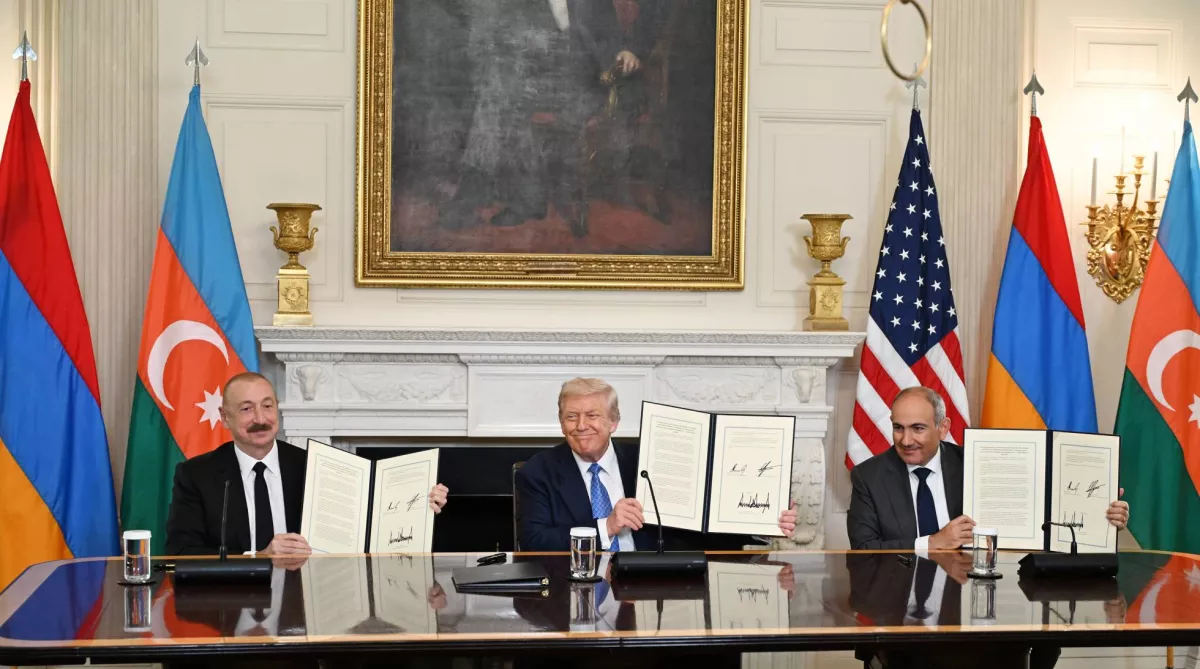A mission for peace Azerbaijan’s role on the global stage
The current foreign policy dynamics surrounding Azerbaijan underscore a clear reality — Baku is rapidly strengthening its position not only regionally but also on the global stage. Importantly, the country is deepening ties not only with its traditional partners but also with states that are in sharp confrontation with each other. A notable example of this approach is the visits of Hikmet Hajiyev, Assistant to the President of the Republic of Azerbaijan and Head of the Foreign Policy Department of the Presidential Administration, to both Israel and Iran.
Through these diplomatic initiatives, official Baku has managed to build productive relations with both the Jewish state and the Islamic Republic of Iran: establishing cooperation with Israel, particularly in high-tech, medical, and defence sectors, while simultaneously maintaining a constructive dialogue with Iran, grounded in historical, cultural, and religious ties.

This time, Azerbaijan’s presidential aide participated in the U.S.–Middle East Summit and an event organised by the American Jewish Committee (AJC) at Congress, while also holding a series of meetings focused on Azerbaijan’s strategic partnership with the United States, regional challenges, and global security issues. Notably, his discussions involved not only executive branch officials but also members of Congress and senators, reflecting Washington’s comprehensive approach to cooperation with Baku.
A key element of Hikmet Hajiyev’s visit was his meeting with U.S. Deputy Secretary of State Christopher Landau, during which they held extensive discussions on strategic Azerbaijani-American relations, as well as regional and global political matters.

Meanwhile, meetings with Chairman of the U.S. House Foreign Affairs Committee Brian Mast and Senator Steve Daines highlighted Azerbaijan’s strategic significance on the American political agenda. Daines, a close ally of Donald Trump, openly advocates for advancing the Trans-Caspian project and transporting Turkmen gas to Europe via Azerbaijan — a policy fully aligned with the priorities of the U.S. presidential administration.
It can now be stated without doubt that Azerbaijani-American relations have entered a new phase. Azerbaijan has emerged as the key U.S. ally in the South Caucasus. The clearest evidence of this is President Ilham Aliyev’s successful visit to Washington, during which, with the participation of Donald Trump, a peace agreement between Azerbaijan and Armenia was initialled.

This step marked a historic moment for the entire region: decades of confrontation and war have given way to a process of normalisation.
For the international community, the Washington agreements demonstrated that, with U.S. support and Azerbaijan’s leadership, a breakthrough could be achieved in the longest-running conflict in the post-Soviet space. The White House made it clear that it is placing its bet on Azerbaijan as the strongest and most influential state in the South Caucasus.
Today, Azerbaijan sits at the centre of a new architecture of regional and global security. Washington is demonstrating that Baku is capable of ensuring stability in the South Caucasus. At the same time, Azerbaijan is not only an energy hub but also a country that has taken on the mission of peacekeeping and strategic mediation. The Republic of Azerbaijan is becoming an integral part of U.S. and Western global policy, and its significance in the international system continues to grow.








